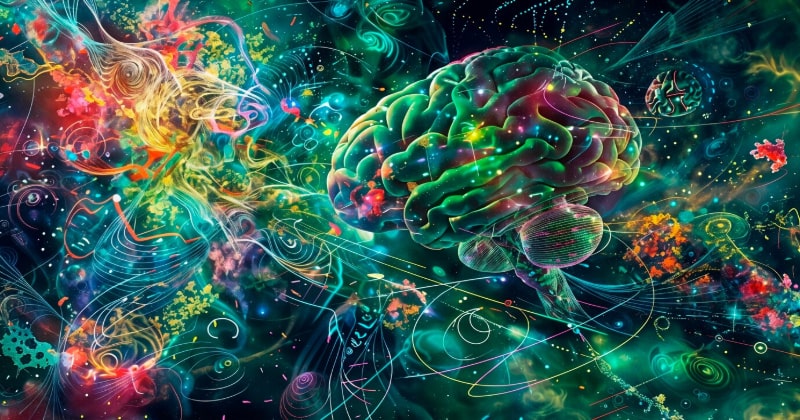
In the ever-evolving intersection of science and spirituality, one intriguing connection has emerged between Ruqyah—an ancient spiritual healing practice—and neuroplasticity, the brain’s ability to reorganize and rewire itself. Ruqyah, deeply rooted in Islamic tradition, involves reciting Quranic verses and specific supplications for healing and protection. While traditionally considered a purely spiritual remedy, there is growing evidence that practices like Ruqyah can have a profound impact on the brain and mental health. This blog post explores the science of neuroplasticity and how Ruqyah, through its spiritual recitations, may influence the brain’s neural pathways, promoting emotional and physical healing.
WHAT IS RUQYAH
Ruqyah is the practice of reciting verses from the Quran or special supplications (duas) with the intention of healing, protection, and spiritual purification. Often used to address psychological and physical ailments such as stress, anxiety, depression, evil eye (Ayn), and black magic (Sihr), Ruqyah is believed to have the power to address the root causes of these disturbances on a deep, spiritual level.
In Islam, it is taught that the Quran is not only a source of wisdom and guidance but also a healing agent. The verses of the Quran, when recited with faith and intention, are said to bring peace, ease anxiety, and cleanse the spirit. Through these recitations, the believer seeks protection and healing from spiritual and emotional afflictions, trusting in the divine power of the words.
THE SCIENCE OF NEUROPLACTICITY
Neuroplasticity, also known as brain plasticity, refers to the brain’s ability to reorganize and form new neural connections. The brain is not a static organ; it constantly adapts in response to stimuli, experiences, and behaviors. This flexibility allows the brain to adjust to changes, heal after injury, and even learn new skills throughout life.
There are two types of neuroplasticity:
1. Functional plasticity: This is the brain’s ability to move functions from damaged areas to healthy ones, often seen in stroke recovery.
2. Structural plasticity: This involves the brain’s ability to physically change its structure by forming new neural connections in response to learning, experiences, or environmental changes.
What’s exciting about neuroplasticity is that it shows us how adaptable the brain truly is. It is constantly learning, reorganizing, and rewiring itself based on our thoughts, behaviors, and experiences. This ability to reshape the brain is essential for mental health, emotional well-being, and even physical recovery.
The Mind-Body Connection: Neuroplasticity and Healing
Research into the mind-body connection has revealed that our thoughts, beliefs, and emotions can significantly influence our physical health. Stress, anxiety, and negative emotions can trigger biological responses that affect the body, from elevated blood pressure to weakened immune function. On the other hand, positive emotions and practices that promote relaxation and peace can enhance health and recovery.
In this context, neuroplasticity plays a critical role in the healing process. By changing the way we think, feel, and experience life, we can rewire our brains in a way that promotes healing. For instance, practices like meditation, mindfulness, and positive affirmations have been shown to trigger neuroplastic changes that can reduce stress, alleviate symptoms of anxiety and depression, and even improve physical health by enhancing the body’s natural healing processes.
HOW RUQYAH INFLUENCES NEUROPLACTICITY
So how does Ruqyah fit into this picture? While scientific studies specifically on the effects of Ruqyah are limited, there are several ways in which the practice could potentially promote neuroplasticity and mental well-being:
1. Reducing Stress and Anxiety: One of the key ways Ruqyah is believed to work is by alleviating the stress and emotional turmoil caused by spiritual disturbances. The act of reciting Quranic verses or listening to them can have a calming effect on the mind and body, similar to the relaxation response seen in meditation. This relaxation can reduce the stress hormones in the body, such as cortisol, and promote emotional healing. By reducing stress, the brain can more easily form new, positive neural connections and promote neuroplasticity.
2. Positive Emotional Reprogramming: Reciting Quranic verses as part of Ruqyah can create a deep sense of connection to the divine, cultivating feelings of hope, peace, and faith. These positive emotions can influence brain chemistry, triggering the release of endorphins and serotonin, neurotransmitters associated with happiness and well-being. This emotional shift can facilitate neuroplastic changes, particularly in regions of the brain involved in emotional regulation, such as the prefrontal cortex and amygdala.
3. The Power of Belief: The placebo effect is a well-documented phenomenon in which a person experiences a real improvement in their health due to their belief in the efficacy of a treatment, even if the treatment has no active ingredients. In the case of Ruqyah, the belief in the divine power of Quranic verses can create a profound psychological effect. This belief can activate the brain’s reward systems and promote neural changes that support emotional and physical healing. When individuals believe they are being healed, their brains may rewire themselves to foster recovery.
4. Faith and Healing: Many studies have shown that faith-based practices have a positive impact on mental and physical health. Religious practices such as prayer, worship, and recitation can activate brain regions associated with meaning-making, comfort, and coping mechanisms. The spiritual connection fostered by Ruqyah may have similar effects, helping individuals to experience greater emotional resilience and mental clarity, promoting healing through both neuroplasticity and spiritual peace.
5. Focus and Meditation: The recitation of Quranic verses during Ruqyah often requires deep concentration and focus. This practice is similar to mindfulness meditation, which has been shown to alter brain structure, particularly in areas related to attention, self-awareness, and emotional regulation. By engaging in Ruqyah with full focus and intention, practitioners may be fostering positive neural changes that support mental clarity, emotional balance, and spiritual healing.
CONCLUSION
The connection between Ruqyah and neuroplasticity lies in the power of the mind, belief, and spiritual practices to influence the brain’s ability to heal, adapt, and grow. While scientific research specifically linking Ruqyah to neuroplasticity is still emerging, the available data on the mind-body connection, stress reduction, and the effects of belief on healing suggest that Ruqyah could have a profound impact on mental and emotional well-being.
By incorporating Ruqyah into one’s life, individuals may not only experience spiritual healing but also foster neuroplastic changes that contribute to improved mental health, emotional resilience, and even physical recovery. As we continue to explore the intersection of science and spirituality, it’s clear that practices like Ruqyah have a unique potential to promote holistic healing, integrating the mind, body, and spirit.
If you’re seeking spiritual healing through Ruqyah or want to learn more about its benefits, feel free to reach out to us. Our services are designed to guide you on your path to well-being, connecting you with the divine power of Quranic recitation and promoting healing at all levels of your being.

